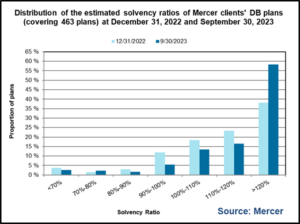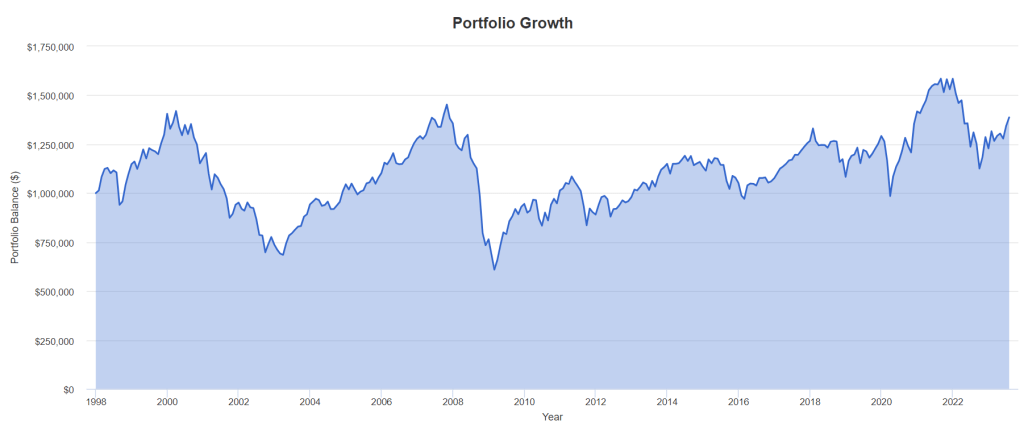
By Michael J. Wiener
Ben Carlson says You Probably Need Less Money Than You Think for Retirement. His “favorite research on this topic comes from an Employee Benefit Research Institute study in 2018 that analyzed the spending habits of retirees during their first two decades of retirement.” Unfortunately, this study’s results aren’t what they appear to be.
The study results
Here are the main conclusions from this study:
- Individuals with less than $200,000 in non-housing assets immediately before retirement had spent down (at the median) about one-quarter of their assets.
- Those with between $200,000 and $500,000 immediately before retirement had spent down 27.2 percent.
- Retirees with at least $500,000 immediately before retirement had spent down only 11.8 percent within the first 20 years of retirement at the median.
- About one-third of all sampled retirees had increased their assets over the first 18 years of retirement.
The natural conclusion from these results is that retirees aren’t spending enough, or that they oversaved before retirement. However, reading these results left me with some questions. Fortunately, the study’s author answered them clearly.
At what moment do we consider someone to be retired?
People’s lives are messy. Couples don’t always retire at the same time, and some people continue to earn money after leaving their long-term careers. This study measures retirement spending relative to the assets people have at the moment they retire. Choosing this moment can make a big difference in measuring spending rates.
From the study:
Definition of Retirement: A primary worker is identified for each household. For couples, the spouse with higher Social Security earnings is the assigned primary worker as he/she has higher average lifetime earnings. Self-reported retirement (month and year) for the primary worker in 2014 (latest survey) is used as the retirement (month and year) for the household.
There is a lot to unpack here. Let’s begin with the “self-reported retirement” date. People who leave their long-term careers tend to think of themselves as retired, even if they continue to earn money in some way. Depending on how much they continue to earn, it is reasonable for their retirement savings either to decline slowly or even increase until they stop earning money. What first looks like underspending turns out to be reasonable in the sense of seeking smooth consumption over the years.
The next thing to look at is couples who retire at different times. Consider the hypothetical couple Jim and Kate. Jim is 6 years older than Kate, and he is deemed to be the “primary worker” according to this study’s definition. Years ago, Jim left his insurance career and declared himself retired, but he built and repaired fences part time for 12 more years. Kate worked for 8 years after Jim’s initial retirement.
Their investments rose from $250,000 to $450,000 over those first 8 years of retirement, declined to $400,000 twelve years after retirement, and returned to $250,000 after 18 years. Given the lifestyle Jim and Kate are living, this $250,000 amount is about right to cover their remaining years. Although Jim and Kate have no problem spending their money sensibly, they and others like them skew the study’s results to make it seem like retirees don’t spend enough.
What is included in non-housing assets?
From the study:
Definition of Non-Housing Assets: Non-housing assets include any real estate other than primary residence; net value of vehicles owned; individual retirement accounts (IRAs), stocks and mutual funds, checking, savings and money market accounts, certificates of deposit (CDs), government savings bonds, Treasury bills, bonds and bond funds; and any other source of wealth minus all debt (such as consumer loans).
So cottages and winter homes count as non-housing assets. This means that a large fraction of many people’s assets is a property that tends to appreciate in value. Even if they spend down other assets, the rising property value will make it seem like they’re not spending enough. It is perfectly reasonable for people to prefer to keep their cottages and winter homes rather than sell them and spend the money. Continue Reading…














